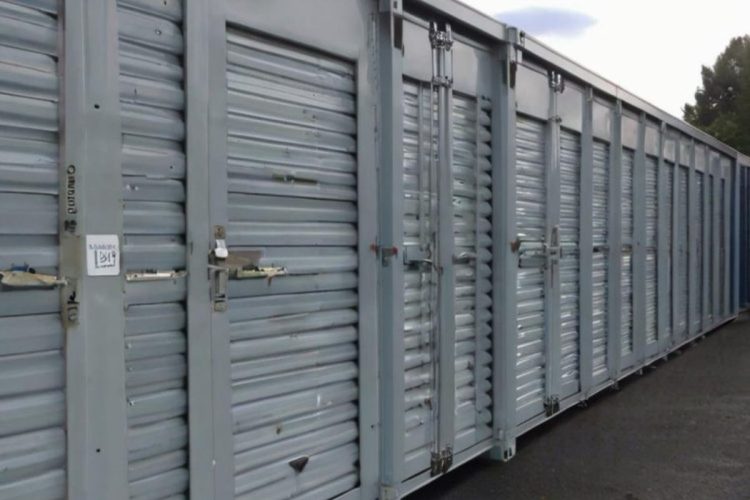The topic Legal Loopholes: Debunking Myths About Hanging Out in Storage Units addresses widespread misconceptions about the legality and safety of spending time in storage units. Questions such as Can you hang out in a storage unit or are you allowed to hang out in a storage unit arise frequently.
This discussion aims to clarify these myths and provide insights into the legal and practical implications of using storage units for purposes beyond storage. The idea of spending time in storage units has gained traction due to perceived convenience and privacy.
Many believe that storage units can serve as temporary living spaces or secret hangouts. This discussion will dissect these beliefs and uncover the truth behind them. The purpose is to debunk myths surrounding the use of storage units as hangouts or living spaces, address the legal frameworks, and explore safe and legal alternatives for those seeking temporary spaces.
Common Myths about Storage Units
Storage Units Can Be Used as Living Spaces
A prevalent myth is that storage units can be converted into makeshift apartments. While it may seem like a cost-effective solution, this is both illegal and unsafe. Storage units lack the necessary infrastructure to support human habitation, including ventilation, plumbing, and safety exits.
It’s Legal to Hang Out in Storage Units
Another common belief is that it’s legal to hang out in storage units. Many people ask, can you hang out in your storage unit or can I hang out in my storage unit. In reality, most storage facilities have strict policies that prohibit using units for anything other than storage. These rules are in place to ensure safety and compliance with local regulations.
Storage Units Are Safe for Extended Stays
Some individuals believe that storage units are safe for extended stays. This myth is dangerous, as storage units are not designed for prolonged human occupancy. Issues such as poor air quality, extreme temperatures, and lack of emergency exits make them unsuitable and hazardous.
Legal Framework
Zoning Laws and Regulations
Zoning laws typically classify self-storage units strictly for storage purposes. Using these spaces for living or hanging out violates local building codes and zoning regulations. Authorities enforce these laws to maintain safety and order in residential and commercial areas.
Facility Policies and Agreements
Storage facility contracts usually include clauses that forbid using the units for anything other than storage. Violating these terms can lead to eviction and financial penalties. Facilities implement these policies to adhere to legal standards and ensure the safety of all users.
Consequences of Violating Rules
Ignoring legal restrictions and facility policies can result in severe consequences. Besides fines and eviction, violators might face legal action. Understanding and respecting these rules is crucial to avoid unwanted repercussions.
Health and Safety Concerns
Ventilation and Air Quality
Storage units lack proper ventilation, leading to poor air quality. Spending time in such conditions can cause respiratory issues and discomfort. Good ventilation is essential for maintaining a healthy environment, which storage units cannot provide.
Temperature Control
Storage units do not have climate control. In summer, temperatures can soar, and in winter, they can plummet. These extremes pose significant health risks, such as heatstroke or hypothermia, making it dangerous to hang out in storage units for extended periods.
Structural Safety
The structural design of storage units does not support human occupancy. They often lack proper exits and emergency procedures, increasing the risk of accidents or entrapment. These safety issues highlight why storage units are unsuitable for any use beyond storage.
Security and Privacy Issues
Surveillance Systems
Storage facilities use surveillance systems to monitor activity and ensure security. Spending time in a unit can be detected, leading to enforcement actions such as being asked to leave or facing penalties. These systems are in place to protect the property and adhere to regulations.
Risks of Isolation
Storage units are often located in isolated areas, which can be risky. In emergencies, help might not be readily available. The isolation also makes them potential targets for criminal activity, increasing personal safety risks.
Emergency Situations
Without proper exits or communication systems, being in a storage unit during an emergency can be life-threatening. It is difficult to get timely assistance in such isolated environments, emphasizing the importance of using spaces designed for occupancy.
Practical Alternatives
Approved Living Spaces
For those needing temporary living spaces, consider legally approved alternatives. These spaces meet safety standards and provide necessary amenities. Asking if Can I hang out with you might lead to finding shared accommodations that are safe and legal.
Coworking Spaces
For temporary workspaces, coworking spaces offer a practical and safe alternative. These environments provide essential facilities like Wi-Fi, electricity, and restrooms, ensuring a comfortable and productive experience.
Short-term Rentals
Short-term rentals, such as those found on Airbnb, offer safe and comfortable options for temporary stays. These rentals are legally compliant and equipped with the necessary amenities, making them a viable alternative to storage units.
Conclusion
The myths about using storage units as living or recreational spaces are debunked by legal, health, and safety concerns. While questions like Can you hang out in a storage unit might seem harmless, the reality is that these practices are unsafe and illegal. If you want to know more about the unit’s facilities and self-storage liabilities, you can visit.




